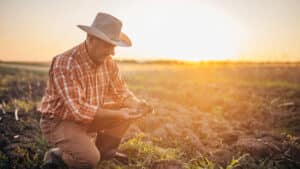Adapting to Rapid Economic Shifts and Building Resilience
In the ever-evolving world of agriculture, staying ahead of the curve is crucial. Recent years have brought about unique economic shifts, leaving agribusinesses and the seed sector in a state of constant adaptation. Michelle Klieger, president and founder of Stratagerm Consulting, says that although these shifts affect agriculture, there are ways for businesses to navigate the challenges while building resilience.
“Agriculture is no stranger to cycles, but the speed and intensity of recent shifts have been remarkable,” she says. “From pandemic-induced supply chain disruptions to surging interest rates, inflation and now, softer commodity prices, agriculture has been forced to adapt at an unprecedented pace.”
Klieger emphasizes that businesses need to be nimble and quickly adjust to today’s rapid, unpredictable cycles.
“We would normally see these ebbs and flows in commodity cycles. And depending on the crop or the animal in the past, farmers and agribusinesses might have experienced seven to 10-year peak-to-peak cycles, but today’s changes are happening much faster, often within weeks or months,” she says.

An example of these extreme fluctuations is vegetable oil demand during the pandemic. Klieger explains that, initially, there was a surplus of vegetable oil on the market due to restaurant closures. However, as restrictions lifted and supply chain issues persisted, there was a sudden surge in demand for cooking oil, causing supply shortages and price hikes.
“I think the challenge for us is that we have this recency bias,” she says. “Right now, I think people are still struggling with prices that went really high, really quickly, and they couldn’t get what they needed. We saw a shift away from having things just in time to having inventory. But you don’t really want to be stuck with a ton of inventory: that’s very expensive if prices are on the way down. The environment keeps changing, so you can’t just respond to high prices.”
Softer commodity prices are a result of many factors. A combination of the cyclical nature of agriculture, the gradual adjustment of supply in response to price signals and external influences such as global market shifts and sustainability efforts all play a part.
To help businesses navigate these challenges and remain resilient, Klieger provided several valuable recommendations:
- Stay informed: keep on top of high-level macroeconomic influences and industry news. Understanding regulatory changes, labor market trends and other external factors can help businesses make informed decisions.
- Analyze and adjust: continuously analyze business numbers and financials. Identify what worked and what didn’t during recent shifts and accordingly adjust strategies to address the current conditions.
- Foster relationships: building and maintaining relationships with other industry players, suppliers and partners can enhance resilience. These connections can lead to new markets, innovative problem-solving and shared resources and solutions.
- Collaborate and innovate: be open to collaboration with neighboring businesses. Joint ventures, shared resources, and innovative solutions can help businesses weather economic storms and capitalize on opportunities.
Klieger says adaptability is vital. Agriculture, with its cycles of boom and bust, demands a flexible approach. Businesses that can pivot swiftly in response to changing market conditions are better equipped to weather economic storms. She encourages a proactive stance, urging industry players to anticipate shifts rather than reacting solely to recent events.
“The power of collaboration and information sharing within the agricultural community is vital,” Klieger adds. “As the industry faces myriad challenges, from supply chain disruptions to sustainability demands, forging connections with peers, suppliers and stakeholders can lead to innovative solutions and newfound resilience.”













